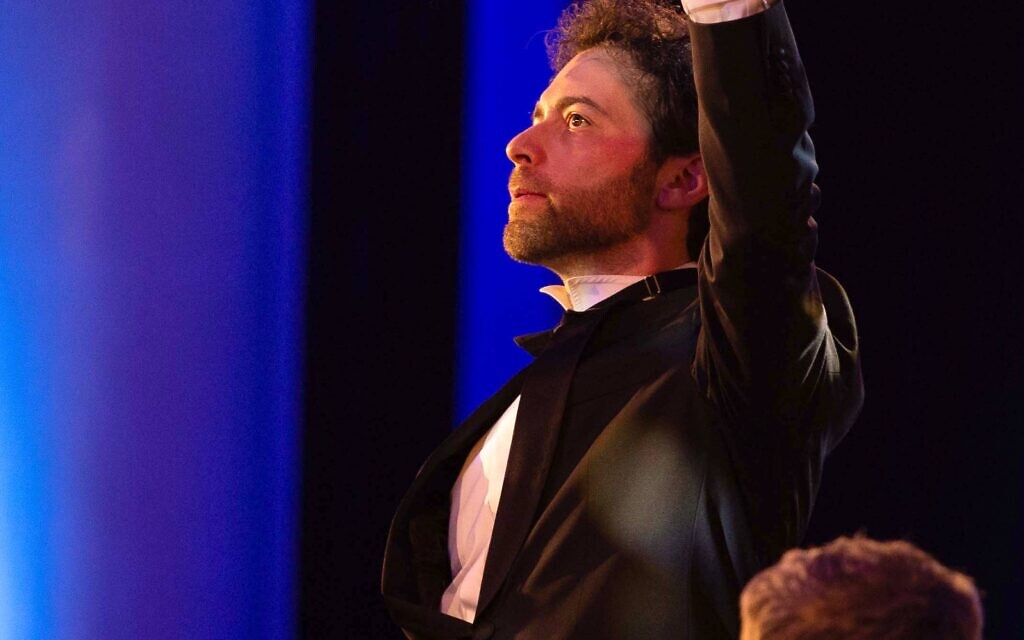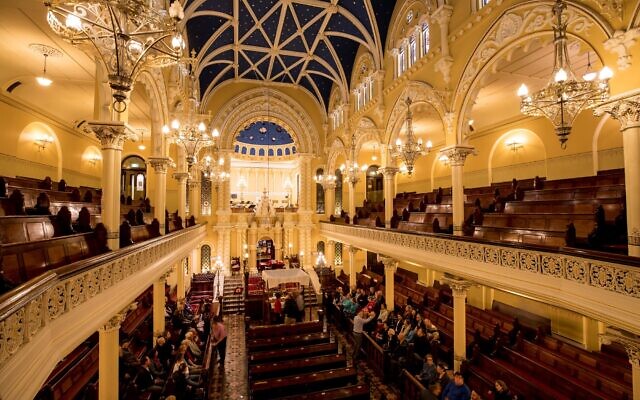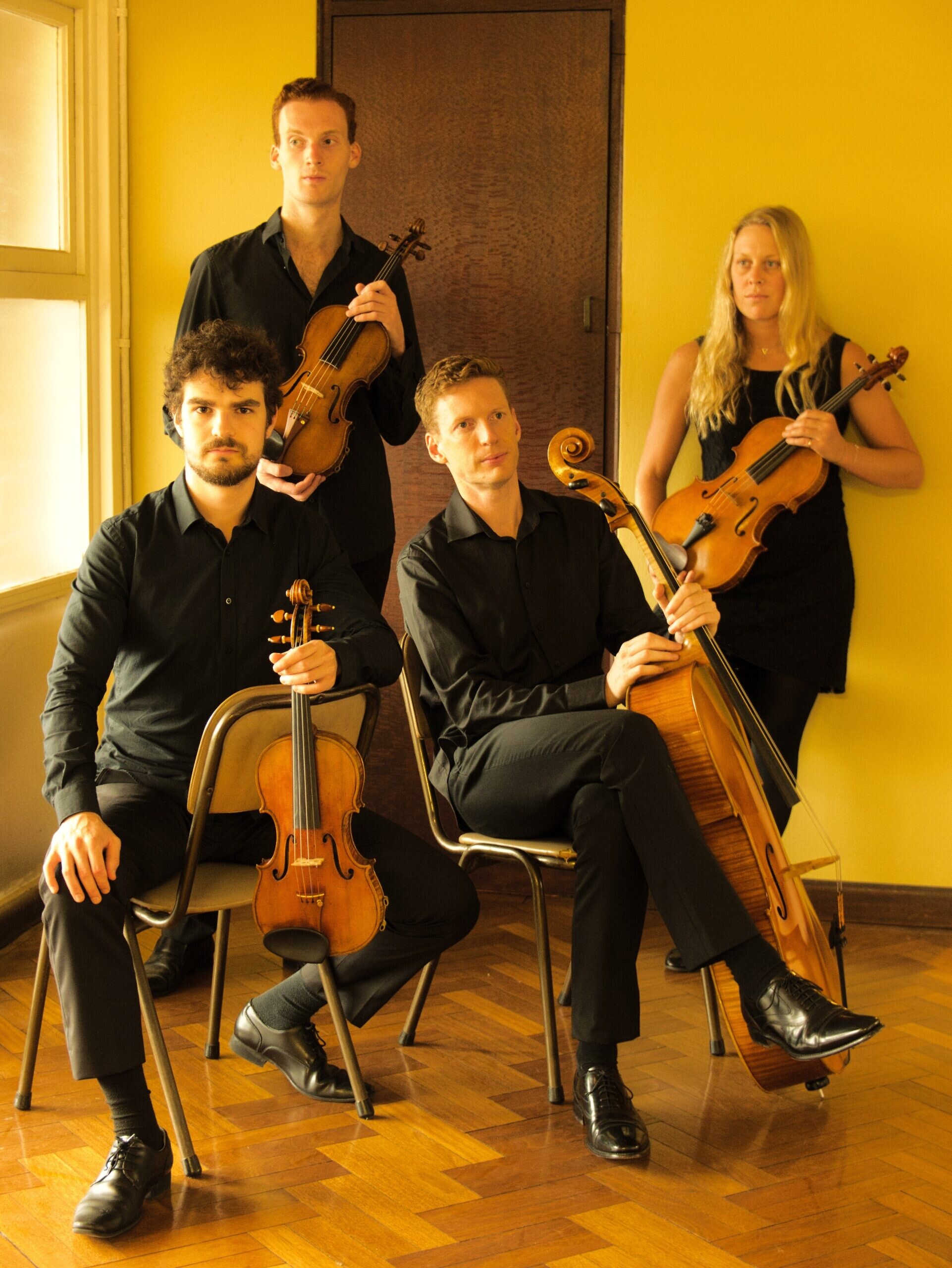‘A seed to a forest’
On Thursday, March 11, works by Bach and Mendelssohn will be performed at The Great Synagogue by violinist Ben Adler and his quartet, with commentary by conductor Vladimir Fanshil.

IN an episode of On Being entitled “Discovering the Cosmology of Bach”, Bernard Chazelle contemplates the tumultuous and universal nature of human grief, aptly captured in Bach’s chaconne:
“You can tell from his music that his emotion is raw. It is so controlled, but it is so profound. This is a man who truly grieves. I mean, you’ll hear the chaconne. It’s a dance. But it’s a grieving dance. I know, it seems like a paradox. But it’s extremely moving and – of somebody who clearly has enormous feeling. And, yet, it’s very controlled.”
Such is the emotional poignancy of Bach’s chaconne that violinist Ben Adler remembers Montefiore residents asking him to play the soulful composition while on their death beds.
“That one last movement is a significant piece for many people … It’s very loaded,” reflects Adler. “This is a piece that is very close to my heart … I have carried it throughout most of my life.”
Bringing the chaconne’s spiritual power to The Great Synagogue on March 11 in a live classical concert presented by Live at Yours, Adler and his energetic quartet will also perform the four preceding movements of Bach’s Partita for Violin No. 2.

“I love that space and the acoustic there is one of the best in Sydney,” says Adler. “Bach’s music fits perfectly in places of worship.”
It’s a natural fit given Bach conducted and wrote ecclesiastical music for two of Leipzig’s major churches – Nikolaikirche and Thomaskirche – locations with high-vaulted ceilings where the melody has “space to rise”, explains impresario Vladimir Fanshil.
“Our beautiful sanctuary with its incredible acoustics has hosted many concerts over the past 140 years and to have the deeply spiritual Bach join us is a treat not to miss,” says Great Synagogue president David Lewis.
After a year of postponed and cancelled live concerts, the opportunity to perform once again is an experience to savour.
“It’s always great playing chamber music in amazing venues,” comments quartet violist Beth Condon.
“I feel incredibly humbled and grateful and want to express my appreciation for audiences and people supporting the arts.
“Playing music is redundant without the other half – we do it for the audience.”

BACH created enchanting worlds from one single motif.
“It is like planting a tree and looking at it from underneath, and then looking at it from above, and then looking at it from a window, then looking at it when it’s raining,” describes Fanshil.
“He was able to take a seed – even in the same key or same theme – but to different genres … His tools for creating variation are endless. He took a seed and grew a forest out of it.”
Bach achieved this creative feat by employing various musical techniques; changing the tempo, experimenting with different rhythms, and introducing chromaticism.
His musical stature, most strikingly encapsulated in Partita for Violin No. 2, will be conveyed by the quartet, with Fanshil guiding the audience through the music.
After writing the first four movements of Partita No. 2 between 1717 and 1720, Bach accompanied Prince Leopold to a spa town in southern Germany, thereafter returning home to the devastating news that his wife, Maria Barbara, had suddenly passed away.
Plunged into the throes of grief, Bach wrote and dedicated the chaconne as a loving tribute to his late wife.
The towering work is a marked change from the first four movements and represents a significant departure from the chaconne’s traditional grounding as a buoyant and light-hearted dance form.
“Bach turned it into this incredibly serious work of art that takes one theme and keeps developing it and looking at it in different ways … It uses minimal instruments, it’s in one key most of the time, and has one main theme, but provides kilometres and worlds of variation,” praises Fanshil.
Deeming the chaconne to be “perhaps the greatest piece of music ever written”, Adler says it “explores a wider and deeper gamut of the human experience than any other work of commensurate scale”.

By contrast, Mendelssohn wrote String Quartet No.3 – the second masterpiece to be performed by the Ben Adler Quartet on March 11 – while savouring the joy of being newlywed, offering a striking antithesis to the depth of despair expressed in Partita No. 2.
“It’s a dedication to his wife of his joy, and Bach’s is an elegy to the death of his wife … It is all about women really,” Fanshil concludes.
Added Great synagogue Rabbi Dr Benjamin Elton, “Bach’s Partita is a spiritual masterpiece, and Mendelssohn is always full of beauty and joy.”
But while Quartet No. 3 is considered a joyous composition, it is also layered with the “other aspects of romanticism like tension, release and suspense”, says Condon.
“It’s definitely optimistic. It’s certainly not filled with angst or anguish … Mendelssohn is such a romantic, particularly his string quartets [are filled] with longing and love and excitement and passion and really there’s only one way to play Mendelssohn and that is to give it everything.
“It’s an emotional rollercoaster ride, but that’s what makes it so exhilarating.”
Adler and his virtuosic quartet will also be performing Mendelssohn and Vivaldi tonight (Thursday, March 4) at Alexandria’s Mecca Coffee, with a tantalising mezze plate and wine pairing to accompany the classical repertoire.
As she reflects on modern-day understandings of revered classical masters, Condon remarks, “Sometimes we may typecast them or put them in a box and say they were very traditional, but when you actually get inside the music, there is a lot going on.
“Even when playing Vivaldi, it’s easy to think when you are playing that it’s all sunshine, and then 30 seconds later you are inside a completely different world … I think Bach very much writes in that vein. He will be going along in D major, and suddenly the whole soundscape will change. It is incredibly progressive writing.”
Tickets: livegreat.eventbrite.com.au. Discounted tickets are available for synagogue members.
Get The AJN Newsletter by email and never miss our top stories Free Sign Up

comments